Measurement areas
- Governance & Strategy
- Genetic Resources
- Intellectual Property
- Research & Development
- Seed Production
- Marketing & Sales
- Capacity Building

The Access to Seeds Index is now part of the World Benchmarking Alliance. All indexes up to 2020 can be found here. New indexes and methodologies are published on the website of the WBA.
Stay here worldbenchmarkingalliance.org
Seed companies are a crucial partner in efforts to raise smallholder farmer productivity and achieve food and nutrition security. For the second time, the Access to Seeds Index shines a light on the global seed companies taking the lead in reaching smallholder farmers.
Small-scale farming dominates the agricultural landscape in South and Southeast Asia and sub-Saharan Africa as well as in several countries in Latin America. Helping farmers in these regions to grow more, and more nutritious, food is key to achieving food and nutrition security, one of the major challenges outlined by the United Nations’ Sustainable Development Goals (SDGs).
A large part of the answer to the question of how to raise agricultural productivity, while also remaining within the planetary boundaries and tackling climate change, lies in plant breeding – but only when the results reach smallholder farmers. This is where the seed industry comes in.
The Access to Seeds Index 2019 highlights different aspects of the seed industry. The ranking below focuses on 13 leading global seed companies. This was preceded, in November 2018, by a ranking of the industry in South and Southeast Asia. A ranking for Eastern and Southern Africa and Western and Central Africa will follow in early March and April 2019 respectively.
The Access to Seeds Index, initiated by the Amsterdam-based Access to Seeds Foundation, is the first benchmark to be published as part of the World Benchmarking Alliance (WBA), launched last September during the UN General Assembly in New York. The goal of WBA benchmarks is to increase the contribution of the private sector to achieving the SDGs.
Thailand-based East-West Seed tops the 2019 Index. With a client base made up almost entirely of smallholders (98%), it demonstrates that business models shaped around small farmers can be profitable. It is followed by Syngenta and Bayer, both demonstrating progress in their commitments to support smallholder farmer productivity.
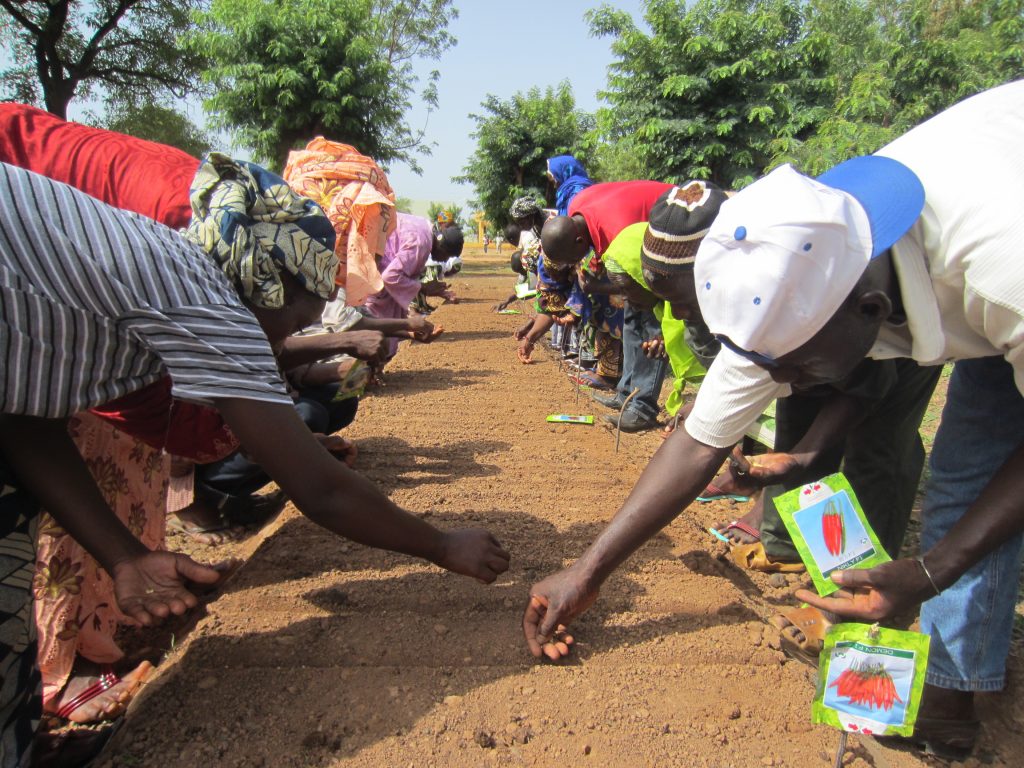
Smallholder farmers in Tanzania receive agronomic training through the Knowledge Transfer Foundation of East-West Seed. One of the practices explained is optimal plant spacing to get the most out of the company’s seeds. East-West Seed aims to reach 100,000 farmers through its Foundation’s programs that focus explicitly on pre-commercial smallholder farmers.
Photo credit: East-West Seed
Hunger is on the rise. Between 2014 and 2017, the number of hungry people increased from 784 million to nearly 821 million. The situation is worsening in Latin America and most regions of Africa, while the fight against malnutrition in Asia has come to a standstill.
Food and nutrition security are negatively affected by a changing climate, which is impacting agriculture. According to the UN, climate change makes improving access to climate-resilient varieties suitable for smallholder farmers more pressing than ever.
The 2019 Access to Seeds Index shows that the global seed industry is adapting their seeds to combat the impact of climate change. However, a lack of access to quality seeds in many emerging economies persists, as global companies reach just 10% of the world’s smallholder farmers.
The importance of investments in improved varieties of crops, offering better nutritional value and diversity, is echoed in a recent report by the EAT–Lancet Commission. The global seed industry can do more to address this call for diversification as companies tend to focus on a select number of crops and varieties, largely neglecting legumes and local crops.
Global seed companies reach 10% of the world’s small farms; growing company presence in Western and Central Africa
The 2016 Index showed that six countries in Western & Central Africa had no global seed companies present. This has since decreased to two countries. Furthermore, the number of global companies has increased in most index countries in the region. However, this presence is generally limited to sales. Western and Central Africa is still lagging behind other regions in terms of company presence, and investments in local seed business activities such as breeding, production and processing are low. Estimates indicate that the 13 global seed companies together reach no more than 10% of the world’s 500 million small farms.
Ten countries benefit most from investments in local seed business activities
All 13 global seed companies invest in local seed business activities such as breeding, production and processing in index regions. However, these investments are concentrated in a small number of countries. As a result, the seed sector in other countries benefits less from these kinds of investments. The ten countries with the most investments are India, Thailand, Indonesia, The Philippines, Vietnam, South Africa, Tanzania, Kenya, Guatemala and Peru. Only two companies report investing in local breeding and one other in production in Western and Central Africa.
Hybrid seed dominates company portfolios
Global seed companies focus on a select number of field crops and, with the exception of soybean, largely ignore legumes. Hybrid seed dominates. None of the companies with field crops in their portfolio report selling open-pollinated varieties (OPVs), which farmers can save and reuse, with the exception of wheat and soybean. For vegetables, the companies together offer all index vegetables. While hybrids are also emphasized in vegetable crops, four companies – East-West Seed, Limagrain, Sakata and Advanta – have a strategic focus on developing OPVs alongside hybrids. For maize and soybean, three and two companies respectively report having genetically modified varieties in their portfolio.
The majority of global seed companies have formal commitments to the SDGs
The 2016 Index showed that only three companies had formal commitments to food and nutrition security as part of an overall corporate strategy. Since then, companies have demonstrated clear progress in the integration of sustainability strategies at the corporate level. Eight of the 13 global seed companies now report aligning their operations with the SDGs. Three companies lead the way in terms of linking their commitments to specific policies, company activities and transparent, measurable targets.
Breeding for climate-resilient varieties is increasing
Breeding for climate-resilient field crop and vegetable varieties is the key contribution global seed companies make to climate action and appears to have increased compared to 2016. Companies report ongoing investment in the development and marketing of climate-resilient varieties, through their own breeding programs or in collaboration with others. The diversity of their portfolio, provision of farmer training and services such as weather insurance are also mentioned as ways to help farmers adapt to changing climatic conditions. In terms of climate change mitigation, multiple companies are committed to reducing greenhouse gas emissions at operational and farm levels.
Nutritional value is increasingly a breeding target but not yet a high priority
Six global seed companies state that nutritional value is a target for their breeding programs, a slight increase on the four companies identified in 2016. Some companies collaborate with others, like HarvestPlus, to improve the nutritional value of field crops such as millet and sorghum. Vegetable seed companies emphasize the importance of vegetables in a diverse and nutritious diet and seek to support dietary diversity by offering a diverse portfolio that includes local vegetables.
The seed industry is pushing for a workable way to improve access and benefit-sharing
In recent years, the seed industry has taken steps to acknowledge that access to genetic resources should be linked to sharing the benefits of such access. Bayer is the first company to make a monetary contribution to the Benefit-sharing Fund of the International Treaty for Plant Genetic Resources for Food and Agriculture (ITPGRFA), under the current use-based regulations. An industry proposal was put forward for an additional ‘subscription-only model’. This would give companies access to genetic material from (public) gene banks based on an annual contribution calculated as a percentage of their annual seed sales. Limagrain took a leading role on behalf of the industry in international negotiations around this proposal.
The assessment of company performance is based on a total of 59 indicators grouped in seven measurement areas. Each measurement area has four categories of indicators: Commitment, Performance, Transparency and Leadership. A company’s overall score is the weighted sum of the scores in each measurement area.
Global seed companies demonstrate clear progress in the integration of sustainability strategies at corporate level. Eight of the 13 companies report aligning their operations with the SDGs. Smallholder farmers are an increasingly important focus of company activities.
Ranking for Governance & Strategy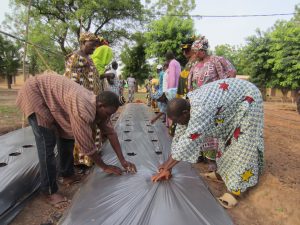
Most global seed companies have established national or international partnerships to conserve genetic diversity and adhere to national laws and international treaties, often through in-kind or financial donations. However, few companies demonstrate activities that go beyond legal obligations.
Ranking for Genetic Resources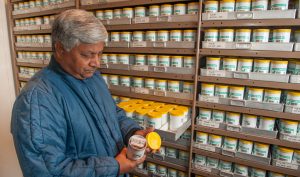
A small majority of global seed companies explicitly state that they do not restrict farm-saved seed practices through intellectual property (IP) protection. Several companies provide royalty-free access to protected materials and technologies for collaborative projects that result in varieties benefiting smallholder farmers.
Ranking for Intellectual Property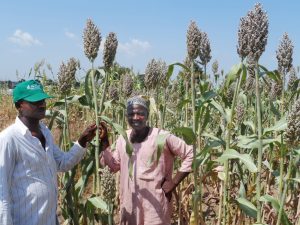
Global seed companies invest heavily in breeding stations in South and Southeast Asia and increasingly in Eastern and Southern Africa. Similar investments in Western and Central Africa are limited. Although attention for nutritional value is increasing, it is not currently a high breeding priority.
Ranking for Research & Development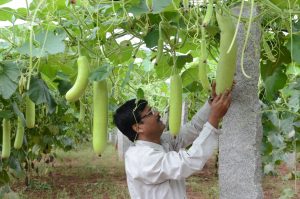
Local seed production activities are mainly found in South and Southeast Asia, and are almost totally lacking in Western and Central Africa. In Asia, smallholder farmers are often involved in seed production. Despite strong commitments to tackling it, child labor remains a concern for the industry as a whole.
Ranking for Seed Production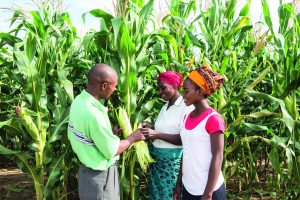
Global seed companies sell only a portion of their portfolio in index countries. Although companies tailor their approaches to smallholders, overall, transparency around sales activities is low, making it difficult to assess the industry’s full reach.
Ranking for Marketing & Sales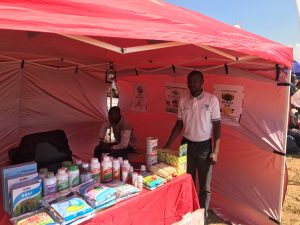
Global seed companies are involved in capacity building activities in all index regions, often in partnership. However, in a large number of countries where companies have a sales presence, only a few accompany these with extension services for smallholder farmers. A specific focus on women and next-generation farmers is generally lacking.
Ranking for Capacity Building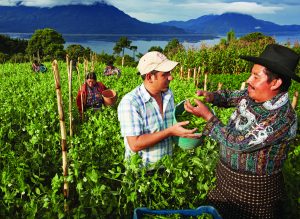
The index presents scorecards for each company, which can be accessed via the links below. The scorecards highlight a company’s presence and portfolio, leading practices and notable findings. They also present comparative strengths in relation to the other companies assessed.
View here to see how the company ranking works.
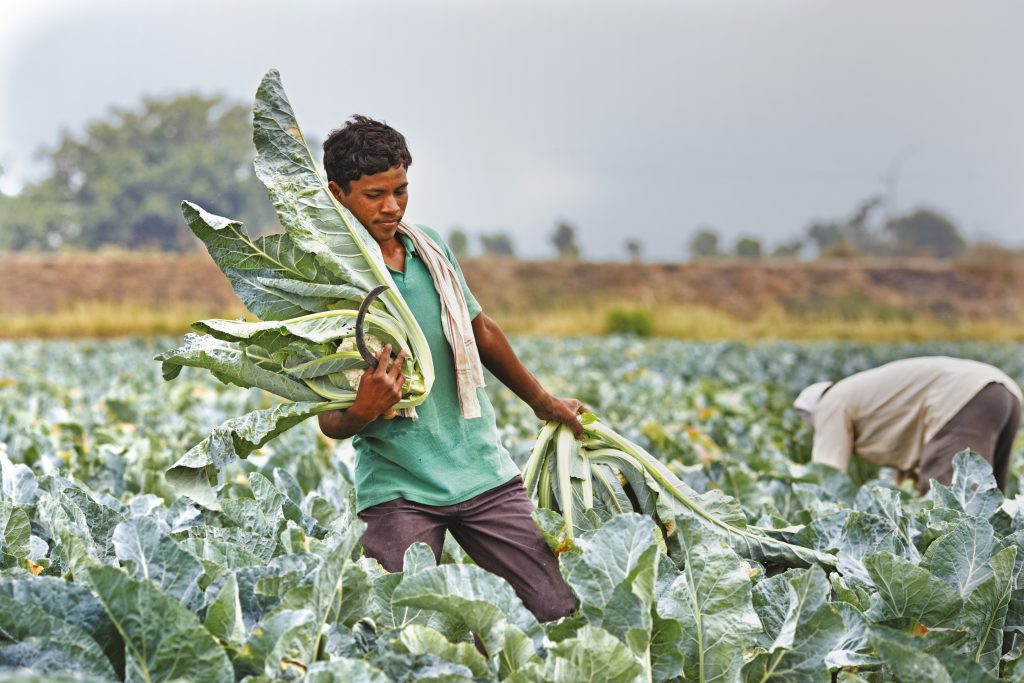
A farmer in Guatemala is harvesting cauliflower after receiving training through Bayer’s Food Chain Partnership. The initiative is a global program that seeks to implement best agricultural practices in food value chains and is active in ten index countries. Through certification support and field demonstrations the program aims to ensure that smallholder farmers meet consumer requirements regarding food quality, safety and traceability.
Photo credit: Bayer
The country profiles provide an overview of the presence and activities of all 62 index companies in each of the 65 countries in scope of the Access to Seeds Index.
Eleven index companies report having a presence in Bolivia. Only Corteva Agriscience has a breeding location in the country, whereas Advanta is the only index company with production and processing activities. Only two companies provide extension services.
Fourteen index companies report having a presence in Colombia. Four companies have testing locations. No company reports breeding, production or processing activities. Only two companies provide extension services.
Fifteen index companies report having a presence in the Dominican Republic. Only KWS reports breeding activities, while Known-You Seed is the only company offering extension services. Four companies have testing locations.
Fourteen index companies report having a presence in Ecuador. Two companies, Advanta and Known-You Seed, have testing locations in the country. No index company invests in breeding, production or processing, and no company provides extension services.
Twelve index companies report having a presence in El Salvador. Only Limagrain has a breeding location in the country. Two companies report testing activities. No company is involved in extension services.
Thirteen index companies report having a presence in Guatemala. With activities in breeding, testing, production and extension, Bejo is the most active global seed company in the country. Two other companies are involved in breeding or production.
With only four seed companies present, Haiti has the lowest level of global seed industry activity in Latin America. No company is involved in breeding, testing, production, processing or extension services.
Fourteen index companies report having a presence in Honduras. Three companies have testing locations in the country. No company is involved in breeding, production, processing or extension services.
Nine index companies report having a presence in Nicaragua. Only one company reports that it is testing its portfolio in the country. No company is involved in breeding, production, processing or extension services.
Twelve index companies report having a presence in Paraguay. With activities in breeding, testing, production and extension, Bayer is the most active global seed company in the country. One company is involved in breeding and two others in production and extension.
With three global seed companies breeding in the country and five producing seed, Peru has the highest level of seed industry investments in Latin America. Although 15 companies report having a presence, no company provides extension services.
Five index companies report having a presence in Benin. East-West Seed is the only index company that has breeding activities, while Technisem is the only company providing extension services and producing seed in the country.
Seventeen index companies report having a presence in Burkina Faso, of which two are headquartered in the country. Two index companies partner in breeding, and five produce seed. Only two companies provide extension services.
Thirteen index companies report having a presence in Cameroon, of which one is headquartered in the country. Two index companies partner in breeding, while five produce seed. Only two companies provide extension services.
East-West Seed is the only index company with a presence in Central African Republic. No index company invests in breeding, production or extension in the country. Two national seed-producing cooperatives (not included in the index) produce and sell seed for field crops.
Only two index companies have a presence in Chad. No index company invests in breeding, production or extension in the country. Several national companies and cooperatives (not included in the index) produce and sell seed, but none of them is active in breeding.
Seventeen index companies have a presence in Côte d’Ivoire, of which one, BILOHF, is headquartered in the country. Only three offer extension services. No company reports breeding activities, and one produce seed and has processing facilities.
Eleven index companies have a presence in Democratic Republic of Congo, although only three provide extension services. Only one company reports breeding, production and processing activities. Several national companies (not included in the index) produce seed locally.
Technisem is the only index company with a presence in Equatorial Guinea, and it only sells seed. No index company invests in seed sector development. No data is available on national seed-producing actors.
Five index companies have a presence in Gabon. Most limit themselves to sales. Only Technisem reports testing and extension activities. Gabon is one of the few countries in the region where no seed-producing cooperatives could be identified.
Seventeen index companies have a presence in Ghana, but only two companies provide extension services. Seed Co is the only company with breeding activities. It also produces seed, as does Heritage Seed, which is headquartered in the country.
Five index companies have a presence in Guinea. None of them is involved in local breeding, production or extension services. Although several national seed companies and cooperatives are involved in seed production, none of them is involved in breeding.
Only one index company, Pop Vriend Seeds, has a presence in Guinea-Bissau. No index company and no national seed companies or cooperatives were found to be investing in seed production or breeding in the country.
Four index companies have a presence in Liberia. They limit themselves to sales. Several seed-producing cooperatives (not included in the index) produce seed locally. No seed companies or cooperatives were found to be involved in testing or breeding.
Sixteen index companies have a presence in Mali. However, only four accompany their sales activities with extension services. Mali-based Soprosa and Syngenta report breeding activities. Three index companies, which produce seed locally, are headquartered in the country.
Only four index companies have a presence in Mauritania. They limit themselves to sales. No index companies were found to be investing in activities such as breeding, testing, production or extension.
Eleven index companies have a presence in Niger, one of which is headquartered in the country. No company has breeding activities, but three have testing locations. Only one company produces seed locally as do several cooperatives (not included in the index).
With four index companies headquartered in the country and 20 others having a presence here, Nigeria is clearly a regional hotspot for the seed industry. Four companies have breeding activities, six produce seed and nine are involved in extension services.
Seven index companies have a presence in the Republic of the Congo. One of them provides extension services, but none produces seed. No index company and no national seed companies have breeding activities in the country.
Twenty-one index companies report having a presence in Senegal. Two of them are headquartered in the country. Only three companies provide extension services and three have breeding activities. Senegal has a strong infrastructure of seed-producing cooperatives.
Six index companies have a presence in Sierra Leone. They limit themselves to sales. No index company breeds or produces seed in the country. However, several national seed companies and cooperatives are involved in local seed production.
Eight index companies have a presence in The Gambia, limiting themselves to sales activities. No index company breeds or produces seed in the country. However, several seed-producing cooperatives (not included in the index) produce seed locally.
Seven index companies have a presence in Togo. No company has breeding activities, but two have testing locations. Only Technisem is involved in extension. No index company produces seed locally, although several cooperatives (not included in the index) do as well.
Fourteen index companies report having a presence in Angola. Capstone Seeds and Seed Co are the only two companies both producing and testing seed in the country. No breeding activities or extension services were identified.
Ten index companies report having a presence in Botswana. None of them have breeding, seed production or processing activities. Only two companies with testing locations were identified. One company offers extension services, with two technical staff dedicated to training farmers.
Eight index companies are present in Burundi. Four are regionally based and four are globally active. Only two companies provide extension services and two report testing locations. Seed Co is the only company producing seed in the country.
Eight index companies report being present in Eswatini, but none have breeding or processing locations. Only one company has a seed production location and provides extension services, and one other has testing activities.
Seventeen index companies have a presence in Ethiopia. However, only four provide extension services. Two companies have breeding programs, five produce seed (with three involving smallholders) and two process seed. Homegrown Ethiopian Agricultural Business Corporation is the only company with activities that span the seed value chain.
Twenty-six index companies are present in Kenya, the highest number in the region, underscoring the country’s position as regional seed hub. Three index companies are headquartered here. Six companies breed, nine produce and six process seed. Kenya also has the broadest offering of extension services, provided by nine companies.
Six index companies are present in Lesotho – a low level of private sector activity. Furthermore, only one company carries out activities beyond sales, namely testing and extension. Local companies (not included in the index) do not provide evidence of activities beyond sales.
Ten index companies have a presence in Madagascar, alongside several local companies outside of the scope of the index. Only one index company has processing activities, and three produce seed. Two index companies, Technisem and Limagrain, have breeding activities.
Eleven index companies have a presence in Malawi, including Demeter Seed, which is headquartered in the country and is one of two companies offering extension services. Five companies produce seed, three of them involving smallholders. Syngenta is the only company with breeding activities.
Seventeen index companies have a presence in Mozambique, but only three offer extension services. Five companies have testing locations and one has a breeding program. Three companies produce seed, two of which involve smallholders.
Eleven index companies have a presence in Namibia, but no company reports providing extension services. Seed Co is the only company that produces seed and has a testing location in the country.
Thirteen index companies have a presence in Rwanda, with three of these providing extension services. Three companies test and produce seed and one processes seed. No companies report breeding programs.
Only three index companies have a presence in Somalia, one of the lowest numbers in the region. Darusalam Seed Company is headquartered here. It is the only company to report testing, production and processing activities. However, it has no breeding program of its own.
Twenty-one index companies report having a presence in South Africa, but only two report providing extension services. South Africa is one of the seed hubs in the region, with ten companies having a breeding location and ten having seed production locations. Only one involves smallholders in production.
Of the nine index companies present in South Sudan, no company reports providing extension services. No company breeds in the country either and only one company has a testing location. A further two companies have seed production activities, although neither involve smallholders.
Twenty-three index companies report having a presence in Tanzania, a regional seed hub, with five companies having breeding and processing locations and nine having seed production locations. Nine companies provide extension services.
Twenty-one index companies report having a presence in Uganda. Four are also headquartered here. Uganda is one of the regional seed hubs, with three companies having breeding locations, five producing seed (of which four involve smallholders) and five processing seed.
Twenty index companies are present in Zambia, including Zamseed, which is headquartered here. Seven companies produce seed although only two involve smallholders. Four companies have breeding locations, with four in total testing and processing seed. Five companies provide extension services.
Nineteen index companies report having a presence in Zimbabwe, but only three provide extension services. Four companies have a breeding location and three produce seed. All three involve smallholder farmers in seed production activities. Four companies report having processing locations.
Nine index companies report having a presence in Afghanistan. They are only involved in the sale of vegetable crops. None of the companies in the index have seed production, testing, breeding, processing or extension activities.
Twenty-three index companies are present in Bangladesh, with most of the companies having testing locations. The Bangladeshi companies BRAC Seed and Agro Enterprise and Lal Teer Seed have complete seed value chains in the country, from breeding to extension.
Twelve index companies report having a presence in Cambodia, with four having testing locations and three offering extension activities. National seed actors (not included in the index) carry out breeding and production activities.
Twenty-six index companies report having a presence in India, with eight headquartered in the country. Companies have complete seed value chains in the country, making it a regional seed hub. India is the only index country participating in OECD seed schemes.
Twenty-one index companies report having a presence in Indonesia, with three companies having breeding, testing, seed production, processing, sales and extension activities along the entire seed value chain. The country is developing into a competitive seed hub.
Ten index companies have a presence in Laos, selling seed for both field crops and vegetables. However, seed business activities are limited. Two companies have testing locations, but only one company offers extension services.
Fourteen index companies report having a presence in Myanmar. None of the companies report breeding locations. Six companies indicate having testing locations, but other activities such as seed production, processing and extension are limited.
Eighteen index companies report having a presence in Nepal. While six companies indicate having testing locations, Lal Teer Seed is the only company that has a full seed value chain including breeding activities.
Twenty-two index companies report having a presence in Pakistan. Seed production is carried out by three companies with limited involvement of smallholder farmers. Some local seed companies (not included in the index) carry out breeding and production.
Nineteen index companies report having a presence in Sri Lanka, with eight having testing locations. Only two companies offer extension services. Some local companies (not included in the index) produce seed in the country, although Advanta is the only index company to do so.
Twenty-one index companies report having a presence Thailand. Most of the companies carry out breeding, testing and seed production, making the country one of the seed hubs in the region. Less than half of the companies offer extension services.
Eighteen index companies report having a presence in the Philippines. Eight companies indicate having testing locations. Six have breeding locations, four have processing locations and six produce seed in the country, making it one of the seed hubs in the region.
Twenty-one index companies report having a presence in Vietnam. It can be considered a seed hub, with seed production and breeding activities being carried out by nine and six companies respectively. Only six companies offer extension services.
Eleven index companies report having a presence in Bolivia. Only Corteva Agriscience has a breeding location in the country, whereas Advanta is the only index company with production and processing activities. Only two companies provide extension services.
Fourteen index companies report having a presence in Colombia. Four companies have testing locations. No company reports breeding, production or processing activities. Only two companies provide extension services.
Fifteen index companies report having a presence in the Dominican Republic. Only KWS reports breeding activities, while Known-You Seed is the only company offering extension services. Four companies have testing locations.
Fourteen index companies report having a presence in Ecuador. Two companies, Advanta and Known-You Seed, have testing locations in the country. No index company invests in breeding, production or processing, and no company provides extension services.
Twelve index companies report having a presence in El Salvador. Only Limagrain has a breeding location in the country. Two companies report testing activities. No company is involved in extension services.
Thirteen index companies report having a presence in Guatemala. With activities in breeding, testing, production and extension, Bejo is the most active global seed company in the country. Two other companies are involved in breeding or production.
With only four seed companies present, Haiti has the lowest level of global seed industry activity in Latin America. No company is involved in breeding, testing, production, processing or extension services.
Fourteen index companies report having a presence in Honduras. Three companies have testing locations in the country. No company is involved in breeding, production, processing or extension services.
Nine index companies report having a presence in Nicaragua. Only one company reports that it is testing its portfolio in the country. No company is involved in breeding, production, processing or extension services.
Twelve index companies report having a presence in Paraguay. With activities in breeding, testing, production and extension, Bayer is the most active global seed company in the country. One company is involved in breeding and two others in production and extension.
With three global seed companies breeding in the country and five producing seed, Peru has the highest level of seed industry investments in Latin America. Although 15 companies report having a presence, no company provides extension services.
Five index companies report having a presence in Benin. East-West Seed is the only index company that has breeding activities, while Technisem is the only company providing extension services and producing seed in the country.
Seventeen index companies report having a presence in Burkina Faso, of which two are headquartered in the country. Two index companies partner in breeding, and five produce seed. Only two companies provide extension services.
Thirteen index companies report having a presence in Cameroon, of which one is headquartered in the country. Two index companies partner in breeding, while five produce seed. Only two companies provide extension services.
East-West Seed is the only index company with a presence in Central African Republic. No index company invests in breeding, production or extension in the country. Two national seed-producing cooperatives (not included in the index) produce and sell seed for field crops.
Only two index companies have a presence in Chad. No index company invests in breeding, production or extension in the country. Several national companies and cooperatives (not included in the index) produce and sell seed, but none of them is active in breeding.
Seventeen index companies have a presence in Côte d’Ivoire, of which one, BILOHF, is headquartered in the country. Only three offer extension services. No company reports breeding activities, and one produce seed and has processing facilities.
Eleven index companies have a presence in Democratic Republic of Congo, although only three provide extension services. Only one company reports breeding, production and processing activities. Several national companies (not included in the index) produce seed locally.
Technisem is the only index company with a presence in Equatorial Guinea, and it only sells seed. No index company invests in seed sector development. No data is available on national seed-producing actors.
Five index companies have a presence in Gabon. Most limit themselves to sales. Only Technisem reports testing and extension activities. Gabon is one of the few countries in the region where no seed-producing cooperatives could be identified.
Seventeen index companies have a presence in Ghana, but only two companies provide extension services. Seed Co is the only company with breeding activities. It also produces seed, as does Heritage Seed, which is headquartered in the country.
Five index companies have a presence in Guinea. None of them is involved in local breeding, production or extension services. Although several national seed companies and cooperatives are involved in seed production, none of them is involved in breeding.
Only one index company, Pop Vriend Seeds, has a presence in Guinea-Bissau. No index company and no national seed companies or cooperatives were found to be investing in seed production or breeding in the country.
Four index companies have a presence in Liberia. They limit themselves to sales. Several seed-producing cooperatives (not included in the index) produce seed locally. No seed companies or cooperatives were found to be involved in testing or breeding.
Sixteen index companies have a presence in Mali. However, only four accompany their sales activities with extension services. Mali-based Soprosa and Syngenta report breeding activities. Three index companies, which produce seed locally, are headquartered in the country.
Only four index companies have a presence in Mauritania. They limit themselves to sales. No index companies were found to be investing in activities such as breeding, testing, production or extension.
Eleven index companies have a presence in Niger, one of which is headquartered in the country. No company has breeding activities, but three have testing locations. Only one company produces seed locally as do several cooperatives (not included in the index).
With four index companies headquartered in the country and 20 others having a presence here, Nigeria is clearly a regional hotspot for the seed industry. Four companies have breeding activities, six produce seed and nine are involved in extension services.
Seven index companies have a presence in the Republic of the Congo. One of them provides extension services, but none produces seed. No index company and no national seed companies have breeding activities in the country.
Twenty-one index companies report having a presence in Senegal. Two of them are headquartered in the country. Only three companies provide extension services and three have breeding activities. Senegal has a strong infrastructure of seed-producing cooperatives.
Six index companies have a presence in Sierra Leone. They limit themselves to sales. No index company breeds or produces seed in the country. However, several national seed companies and cooperatives are involved in local seed production.
Eight index companies have a presence in The Gambia, limiting themselves to sales activities. No index company breeds or produces seed in the country. However, several seed-producing cooperatives (not included in the index) produce seed locally.
Seven index companies have a presence in Togo. No company has breeding activities, but two have testing locations. Only Technisem is involved in extension. No index company produces seed locally, although several cooperatives (not included in the index) do as well.
Fourteen index companies report having a presence in Angola. Capstone Seeds and Seed Co are the only two companies both producing and testing seed in the country. No breeding activities or extension services were identified.
Ten index companies report having a presence in Botswana. None of them have breeding, seed production or processing activities. Only two companies with testing locations were identified. One company offers extension services, with two technical staff dedicated to training farmers.
Eight index companies are present in Burundi. Four are regionally based and four are globally active. Only two companies provide extension services and two report testing locations. Seed Co is the only company producing seed in the country.
Eight index companies report being present in Eswatini, but none have breeding or processing locations. Only one company has a seed production location and provides extension services, and one other has testing activities.
Seventeen index companies have a presence in Ethiopia. However, only four provide extension services. Two companies have breeding programs, five produce seed (with three involving smallholders) and two process seed. Homegrown Ethiopian Agricultural Business Corporation is the only company with activities that span the seed value chain.
Twenty-six index companies are present in Kenya, the highest number in the region, underscoring the country’s position as regional seed hub. Three index companies are headquartered here. Six companies breed, nine produce and six process seed. Kenya also has the broadest offering of extension services, provided by nine companies.
Six index companies are present in Lesotho – a low level of private sector activity. Furthermore, only one company carries out activities beyond sales, namely testing and extension. Local companies (not included in the index) do not provide evidence of activities beyond sales.
Ten index companies have a presence in Madagascar, alongside several local companies outside of the scope of the index. Only one index company has processing activities, and three produce seed. Two index companies, Technisem and Limagrain, have breeding activities.
Eleven index companies have a presence in Malawi, including Demeter Seed, which is headquartered in the country and is one of two companies offering extension services. Five companies produce seed, three of them involving smallholders. Syngenta is the only company with breeding activities.
Seventeen index companies have a presence in Mozambique, but only three offer extension services. Five companies have testing locations and one has a breeding program. Three companies produce seed, two of which involve smallholders.
Eleven index companies have a presence in Namibia, but no company reports providing extension services. Seed Co is the only company that produces seed and has a testing location in the country.
Thirteen index companies have a presence in Rwanda, with three of these providing extension services. Three companies test and produce seed and one processes seed. No companies report breeding programs.
Only three index companies have a presence in Somalia, one of the lowest numbers in the region. Darusalam Seed Company is headquartered here. It is the only company to report testing, production and processing activities. However, it has no breeding program of its own.
Twenty-one index companies report having a presence in South Africa, but only two report providing extension services. South Africa is one of the seed hubs in the region, with ten companies having a breeding location and ten having seed production locations. Only one involves smallholders in production.
Of the nine index companies present in South Sudan, no company reports providing extension services. No company breeds in the country either and only one company has a testing location. A further two companies have seed production activities, although neither involve smallholders.
Twenty-three index companies report having a presence in Tanzania, a regional seed hub, with five companies having breeding and processing locations and nine having seed production locations. Nine companies provide extension services.
Twenty-one index companies report having a presence in Uganda. Four are also headquartered here. Uganda is one of the regional seed hubs, with three companies having breeding locations, five producing seed (of which four involve smallholders) and five processing seed.
Twenty index companies are present in Zambia, including Zamseed, which is headquartered here. Seven companies produce seed although only two involve smallholders. Four companies have breeding locations, with four in total testing and processing seed. Five companies provide extension services.
Nineteen index companies report having a presence in Zimbabwe, but only three provide extension services. Four companies have a breeding location and three produce seed. All three involve smallholder farmers in seed production activities. Four companies report having processing locations.
Nine index companies report having a presence in Afghanistan. They are only involved in the sale of vegetable crops. None of the companies in the index have seed production, testing, breeding, processing or extension activities.
Twenty-three index companies are present in Bangladesh, with most of the companies having testing locations. The Bangladeshi companies BRAC Seed and Agro Enterprise and Lal Teer Seed have complete seed value chains in the country, from breeding to extension.
Twelve index companies report having a presence in Cambodia, with four having testing locations and three offering extension activities. National seed actors (not included in the index) carry out breeding and production activities.
Twenty-six index companies report having a presence in India, with eight headquartered in the country. Companies have complete seed value chains in the country, making it a regional seed hub. India is the only index country participating in OECD seed schemes.
Twenty-one index companies report having a presence in Indonesia, with three companies having breeding, testing, seed production, processing, sales and extension activities along the entire seed value chain. The country is developing into a competitive seed hub.
Ten index companies have a presence in Laos, selling seed for both field crops and vegetables. However, seed business activities are limited. Two companies have testing locations, but only one company offers extension services.
Fourteen index companies report having a presence in Myanmar. None of the companies report breeding locations. Six companies indicate having testing locations, but other activities such as seed production, processing and extension are limited.
Eighteen index companies report having a presence in Nepal. While six companies indicate having testing locations, Lal Teer Seed is the only company that has a full seed value chain including breeding activities.
Twenty-two index companies report having a presence in Pakistan. Seed production is carried out by three companies with limited involvement of smallholder farmers. Some local seed companies (not included in the index) carry out breeding and production.
Nineteen index companies report having a presence in Sri Lanka, with eight having testing locations. Only two companies offer extension services. Some local companies (not included in the index) produce seed in the country, although Advanta is the only index company to do so.
Twenty-one index companies report having a presence Thailand. Most of the companies carry out breeding, testing and seed production, making the country one of the seed hubs in the region. Less than half of the companies offer extension services.
Eighteen index companies report having a presence in the Philippines. Eight companies indicate having testing locations. Six have breeding locations, four have processing locations and six produce seed in the country, making it one of the seed hubs in the region.
Twenty-one index companies report having a presence in Vietnam. It can be considered a seed hub, with seed production and breeding activities being carried out by nine and six companies respectively. Only six companies offer extension services.
Disclaimer
The online and printed reports presented by the Access to Seeds Index are intended to be for information purposes only and not as promotional material in any respect. The material is not intended as an offer or solicitation for the purchase or sale of any financial instrument. The reports are not intended to provide accounting, legal or tax advice or investment recommendations.
As a multi-stakeholder and collaborative project the Access to Seeds Index involves members of relevant stakeholder groups in expert or advisory committees. The findings, interpretations and conclusions expressed in Access to Seeds Index reports may not necessarily reflect the views of all involved or the organizations they represent.
The data used to compile the Access to Seeds Index, the ranking and findings are based on information publicly disclosed by companies or submitted on engagement. Information has been cross-checked and where relevant, verified with experts. Final scorecards were discussed with individual companies for fact checking purposes. Whilst based on information believed to be reliable, no guarantee can be given that it is accurate or complete.
Acknowledgements
The Access to Seeds Index 2019 is made possible through the collaborative team efforts of many experts, authors, researchers, analysts and funders. Also the guidance from the Expert Review Committees and the Supervisory Board, as well as the cooperation with the team of the World Benchmarking Alliance have been helpful.
On the side of companies, representatives have been available to provide feedback on the methodology in various stages of the development process. Also teams have been working on gathering and submitting the requested data and provide clarification where necessary.
The Access to Seeds Foundation is grateful for the contributions and expertise, of each and would like to offer thanks to those who provided valuable feedback throughout the development of the Access to Seeds Index.
Copyright
No part of this report may be reproduced in any manner without the written permission of the Access to Seeds Foundation.
Editor
Cecily Layzell, Amsterdam, The Netherlands
Design
Kummer & Herrman, Utrecht, The Netherlands
Web development
Studio September, Utrecht, The Netherlands
Photography
Knowledge Transfer Foundation: East-West Seed
Food Chain Partnership: Bayer
Governance & Strategy: East-West Seed
Genetic Resources: ICRISAT
Intellectual Property: I. Angarawai, ICRISAT
Research & Development: V. Bouchet, Limagrain
Seed Production: Syngenta
Marketing & Sales: H. Sudhakar, Advanta
Capacity Building: Bayer